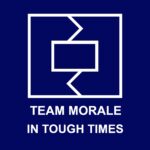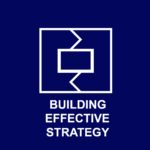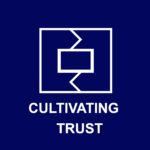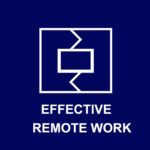Effective Engineering Manager
Effective Engineering Manager, People Management, Retention, Team Management
Maintaining Team Morale Through Tough Times
In this episode, we talk about what causes tough times for companies and how being smart with money and saving up can help keep the business healthy during downturns. We focus on how leaders can boost team morale when things get tough, using tools like one-on-one meetings, positive feedback, kudos programs, and team outings. We also cover the importance of strong engineering leadership, coaching, and career development when facing changes in the organization. Tune in for practical tips and strategies to keep your team motivated and resilient through the rough patches.
Building Teams, Career Development, One-on-One, People Management, Performance Management, Retention
Managing Hyperperformers
We dedicate this episode to managing hyper performers. We define who the hyperperformers are, what distinguishes them from the rest of the team and how to manage hyperperformers for the maximum results while retaining them. We share management practices to avoid. In the end provide a checklist that our listeners can use to manage hyperperformers effectively.
Building Effective Strategy
We present the essential components of developing and communicating a strategy in engineering management, emphasize the need for strategies to be documented, measurable, and aligned with business needs. We share the importance of having a strategy as an engineering manager aspiring to drive change and innovation. We emphasize the need for a clear vision, meaningful goals tied to business value, and continuous iteration. We stress the importance of buy-in in the success of a strategy, highlighting the need for the team to be fully supportive of the strategy, as well as the importance of obtaining buy-in from higher management. Finally, we provide a detailed checklist to allow engineering managers developing a well-aligned and challenging yet achievable strategy, covering aspects such as building a strong foundation, aligning with business goals, leveraging lateral relationships, and maintaining effective communication with stakeholders.
Building Teams, People Management
Tim Wenzel: Building Exceptional Teams
We are featuring a guest, Tim Wenzel, who is a Silicon Valley native, expert in recruiting, including building early teams and PayPal and Tesla, and a founder and an executive recruiter at The (A)Lyst Group. Tim shares practical recommendations on feedback, candidate experience, and building teams in dynamic startup environments. In the end, Tim shares a checklist that our listeners can start using today to build exceptional teams.
Cultivating Trust
We dive deep into the importance of trust in engineering management, and how it impacts productivity. We share that trust is built and reinforced over time. We highlight the different layers of trust, including organizational, team, and individual trust, and emphasize the need for consistency and building trust through actions. We explore the subtle distinction between expectations and trust. We also discuss the emotional toll of mistrust caused by broken trust. In the end we provide a checklist that allows our listeners to start cultivating trust in their organizations.
One-on-One, Project Management
Effective Dependency Management
We share how to manage project dependencies in a way that brings results. We are going to define what a dependency is and how to manage your dependencies to ensure that projects you are a part of are delivered on time and with quality. In the end we will provide a checklist that our listeners can use to ensure that their dependencies are always satisfied.
Managing Innovation
We offer an effective way of introducing innovation to an engineering team and getting results regardless of the organization size. In the end we offer an actionable checklist that engineering managers can use to start innovating today.
Effective Engineering Manager, Managing Up
Managing Up: Complaining
We are starting a series on managing up. In this episode we talk about how not to communicate work issues to your boss. We define what complaining is and why complaining is ineffective. We provide a checklist that our listeners can use to see if their upward communications are in the complaining territory.
Building Teams, Retention, Team Management
Effective Remote Work
In this episode, Adam and Slava discuss the new normal of the remote workplace. We discuss the challenges in working remote, key benefits to being remote, and provide guidance for managers to effectively manage remote teams and maximize healthy productivity.
Effective Engineering Manager, Egineering Manager Tools, Managing Across, Managing Up
Escalating Work Issues Effectively
We offer an approach to escalating work issues that brings results without destroying relationships. We share what the escalations are, the impact of escalating unskillfully, and how to escalate professionally and effectively. In the end we provide a checklist that our listeners can use to escalate work issues effectively.









